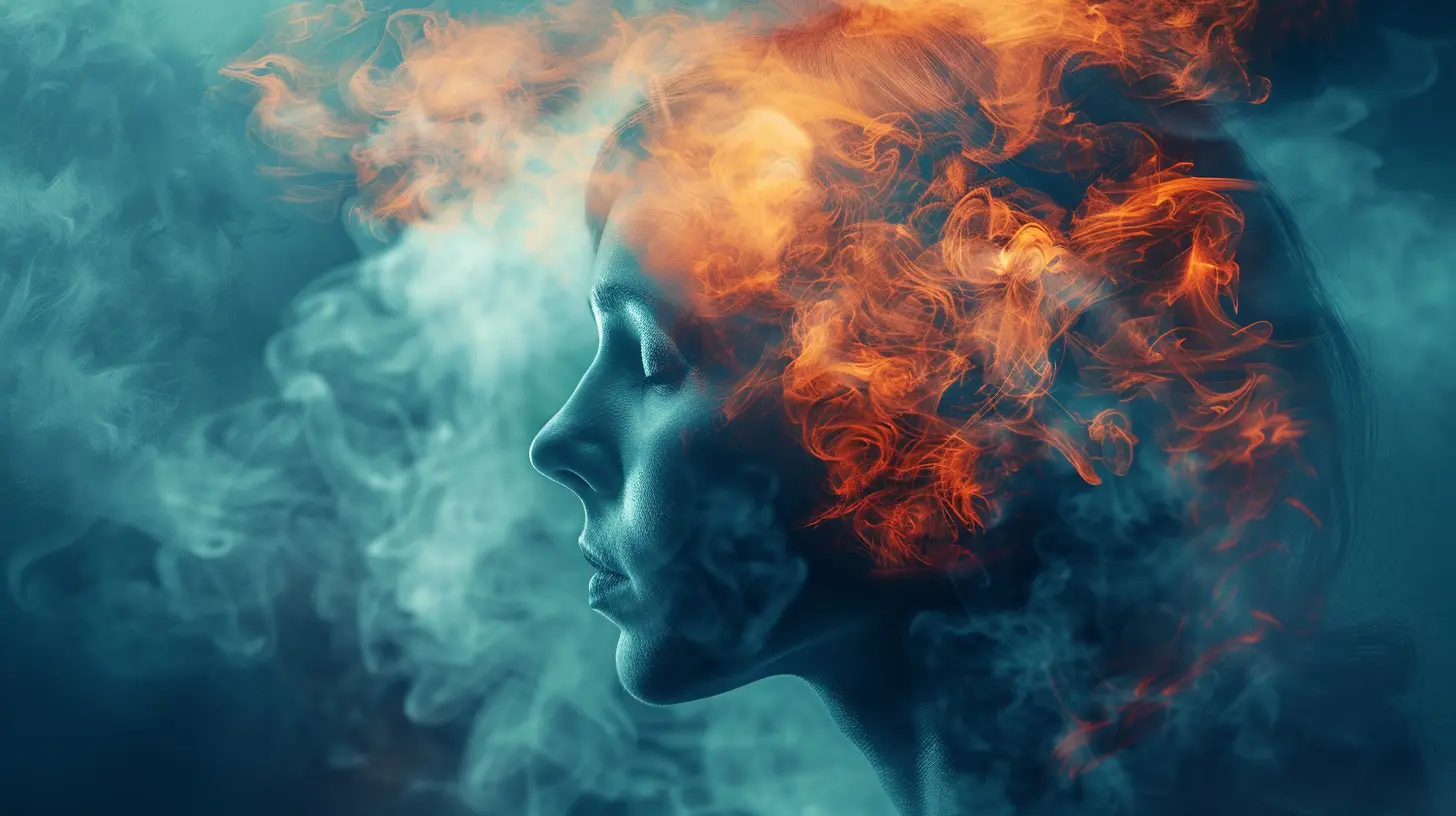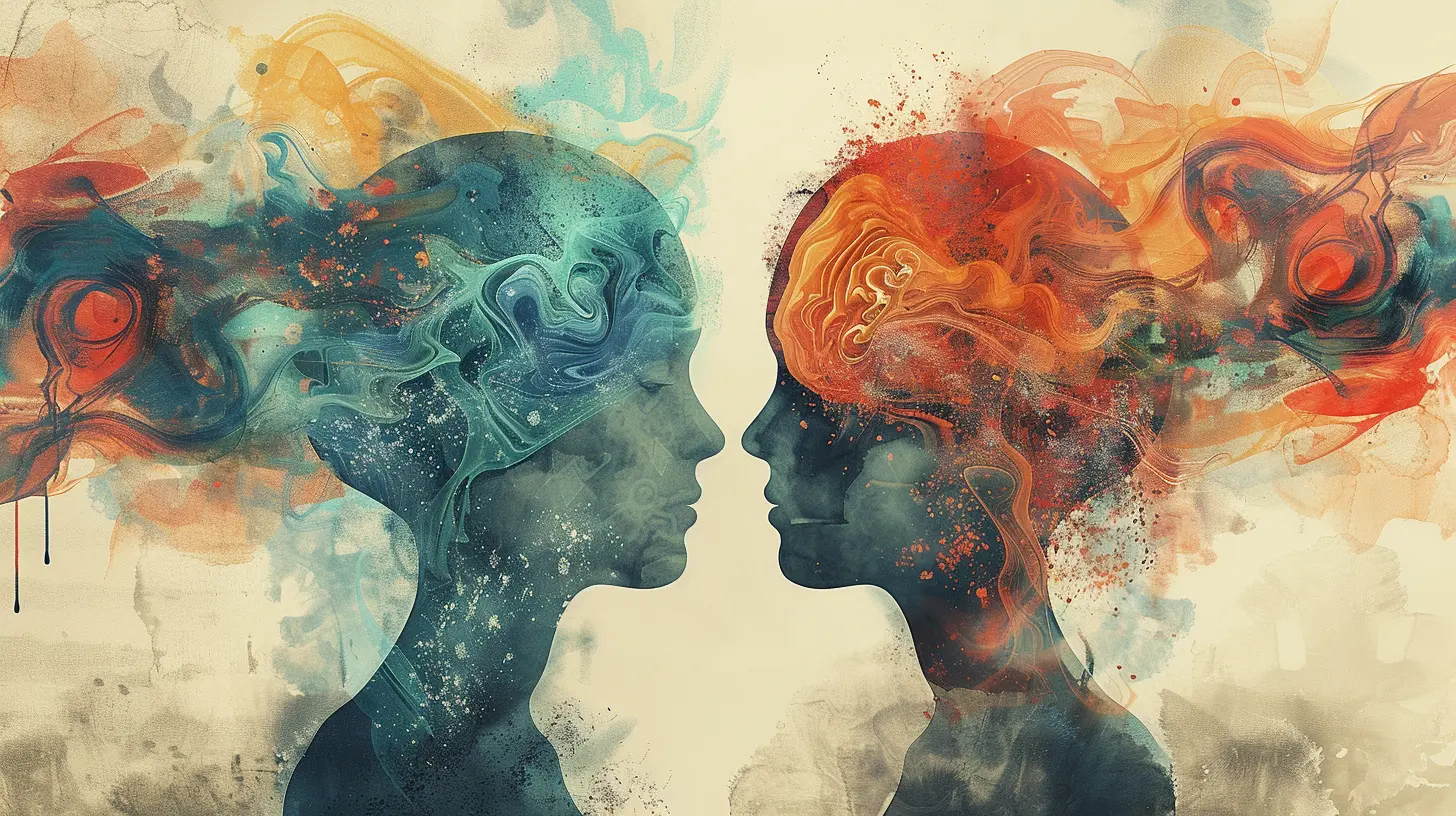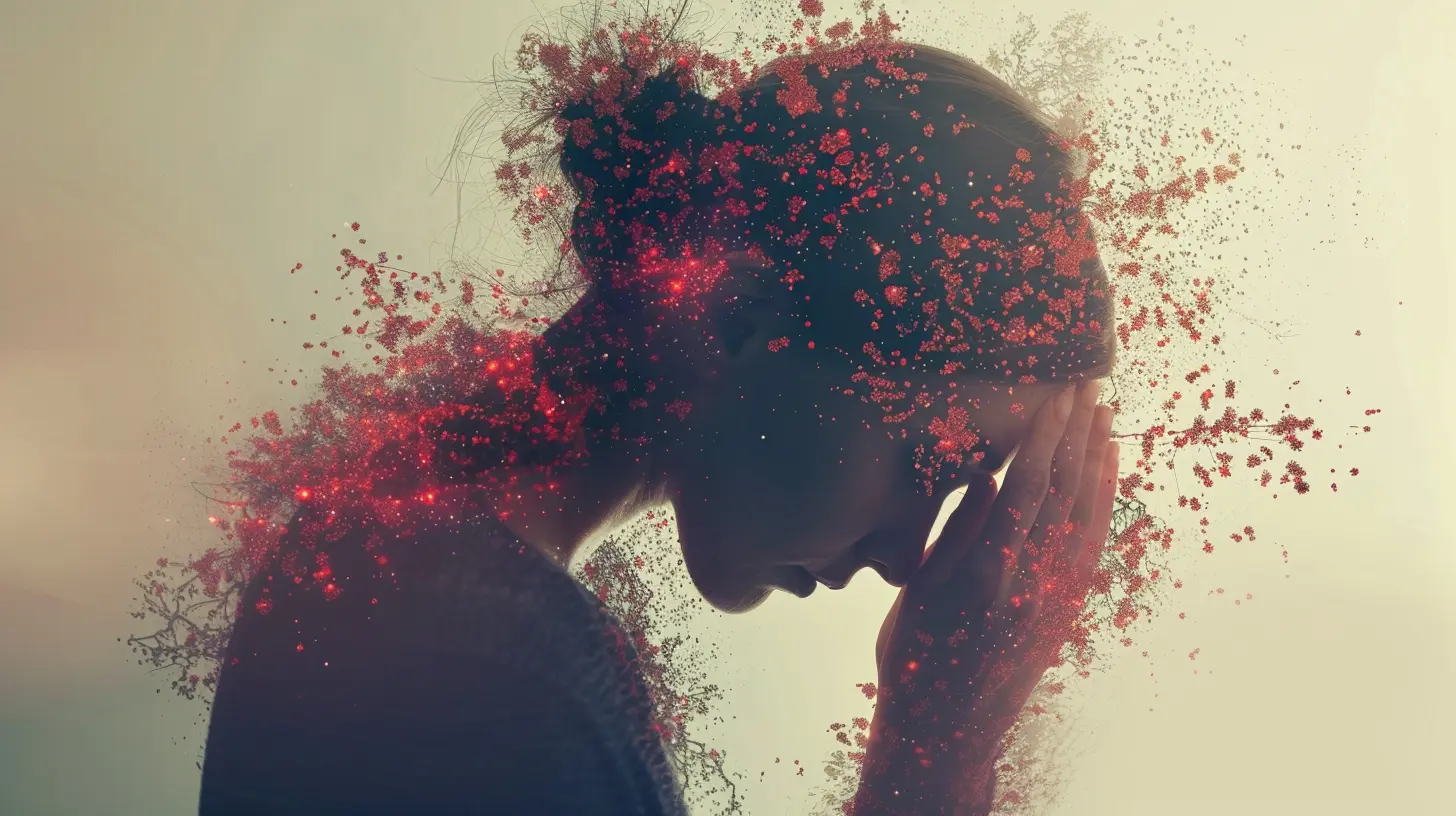The Role of Hormones in Mental Health Disorders
20 June 2025
Let’s get real for a second—when you think about your mental health, what's the first thing that comes to mind? Probably stuff like stress, anxiety, depression, or even past trauma. But what if I told you there’s a silent influencer behind the scenes, constantly pulling strings? Yep, I’m talking about hormones.
Hormones are like the chemical messengers of your body. They quietly run the show, keeping everything in balance—until they don’t. And when that balance is off? Your mental health can take a serious hit. It’s like trying to drive a car with no steering wheel—it just doesn’t work.
In this article, we’re going deep into the role of hormones in mental health disorders. Grab a cup of coffee (or tea, if that’s your jam) and let’s talk about how these tiny chemicals can have such a monumental impact on how we think, feel, and behave.
Understanding Hormones: The Unsung Heroes (and Villains) of Our Bodies
Before we dive into the connection between hormones and mental health, let’s get the basics straight.Hormones are chemical signals produced by glands in your endocrine system—like the thyroid, adrenal glands, pancreas, and reproductive organs. They float around in your bloodstream, telling your organs and tissues what to do.
Some of the major hormones that affect mental health include:
- Cortisol
- Estrogen
- Progesterone
- Testosterone
- Thyroid hormones (T3 and T4)
- Serotonin and dopamine (often considered neurotransmitters, but let's include them here too)
These hormones influence nearly everything—from your energy levels to your mood, sleep, appetite, and even how motivated you feel. So, when they’re out of whack, your emotional and psychological health can nosedive.
Cortisol: The Stress Hormone That Won’t Quit
Ever felt like your anxiety is living rent-free inside your head? Say hello to cortisol. It’s often called the "stress hormone," and for good reason.Cortisol helps your body deal with stressful situations. It’s part of your fight-or-flight response. But here’s the thing—when stress becomes chronic, cortisol levels stay elevated. That’s when the problems start.
How Cortisol Affects Mental Health:
- Anxiety: Excess cortisol amps up your body’s alert system, making you hyper-aware—and hyper-nervous.- Depression: Chronically high cortisol can lead to brain inflammation and reduced serotonin production, which may spiral into depression.
- Memory Issues: High levels of cortisol can actually shrink the hippocampus (yep, the part of your brain responsible for memory).
So, if you’re constantly feeling overwhelmed, can’t sleep, and have trouble focusing—it might not just be "in your head." It might be cortisol calling the shots.
Estrogen and Progesterone: Hormonal Roller Coasters in Women
Women—this one’s for you. You probably already know that your mood can fluctuate during your menstrual cycle, but it’s not just "PMS drama." It’s real, and the culprits are estrogen and progesterone.The Estrogen Effect:
Estrogen helps regulate serotonin and dopamine—those lovely brain chemicals that make you feel good. When estrogen drops (like during your period or menopause), serotonin levels can also drop, causing mood swings, irritability, and sadness.The Progesterone Problem:
Progesterone has a calming effect on the brain. When it’s low, anxiety and restlessness can spike. It’s why some women feel on edge right before their periods—when progesterone takes a nosedive.PMDD: When Hormones Hijack Your Brain
Premenstrual Dysphoric Disorder (PMDD) is a severe form of PMS that’s directly linked to hormonal fluctuations. For those experiencing PMDD, the days leading up to a period can bring intense depression, anxiety, and even suicidal thoughts.
Testosterone: Not Just a “Male” Hormone
Testosterone often gets pegged as the "man hormone," but surprise—it affects everyone. While men have more of it, women have testosterone too, just in smaller amounts.Low testosterone levels in men have been linked with:
- Depression
- Lack of motivation
- Low libido
- Fatigue
In women, too much testosterone (think PCOS—Polycystic Ovary Syndrome) can lead to mood swings, anxiety, and even depression. This hormone is all about balance—not too much, not too little.
Thyroid Hormones: The Tiny Gland With Huge Power
The thyroid, located in your neck, produces hormones that play a massive role in your mood and energy. Let’s break it down:Hypothyroidism (Low Thyroid Hormones):
- Classic symptoms include fatigue, weight gain, and feeling cold all the time.- Mentally, it can cause depression, brain fog, and slowed thinking.
Hyperthyroidism (High Thyroid Hormones):
- Physically, it causes weight loss, a racing heart, and heat intolerance.- Mentally, it often results in anxiety, restlessness, and even insomnia.
If you're dealing with mental health issues and nothing seems to be working, it might be worth checking your thyroid. It might just be the missing piece of the puzzle.
Insulin and Blood Sugar: The Mood Rollercoaster
Ever felt hangry? That’s your blood sugar crashing. Insulin is the hormone that helps regulate blood sugar levels, and when it's not balanced, neither is your mood.Low blood sugar (hypoglycemia) can make you shaky, irritable, anxious, and dizzy. High blood sugar can make you sluggish and foggy. Constant fluctuations? They can mimic symptoms of anxiety or bipolar disorder.
Balancing insulin and eating regular, nutritious meals can actually do wonders for your mental clarity and emotional stability.
Hormonal Changes During Major Life Events
There are certain life phases when hormonal shifts go into overdrive. These periods can increase the risk of mental health struggles:1. Puberty
Teen hormones are no joke. With surging estrogen, progesterone, and testosterone, it’s no wonder teens often feel emotionally unstable. Add social pressure to the mix? It’s a perfect storm.2. Pregnancy and Postpartum
While pregnancy can bring a glow, it also brings massive hormonal changes. Postpartum depression (PPD) affects many new moms due to sudden hormone drops after childbirth. It’s not about being a “bad mom”—it’s about biology.3. Menopause
As estrogen and progesterone levels fall, many women experience anxiety, depression, and sleep disturbances. Again, it’s not all “in your head.” It’s hormonal.4. Andropause (Male Menopause)
Yep, men go through a hormonal shift too. Testosterone gradually declines with age, potentially leading to depression, decreased motivation, and irritability.How Do You Know If It's Hormonal?
So how do you figure out if hormones are the root cause of your mental health symptoms? It’s tricky, because emotional and physical issues can overlap. But here are a few red flags:- Mood swings tied to your menstrual cycle
- Symptoms that come and go with no clear trigger
- Sudden changes in weight, energy, or libido
- Anxiety or depression that doesn’t respond to therapy or meds
- Physical symptoms like sweating, hair loss, or cold sensitivity
If any of this sounds familiar, talk to a doctor or endocrinologist. A few simple blood tests can offer some major insights.
Balancing Hormones for Better Mental Health
Okay, so now you know hormones might be throwing your mental state off balance. What can you actually do about it?1. Nutrition Is Key
Eat balanced meals with protein, healthy fats, and complex carbs. Cut back on sugar—it spikes insulin and crashes your mood.2. Sleep Like It’s Your Job
Lack of sleep messes with cortisol, insulin, and basically every mood-regulating hormone. Aim for 7–9 hours a night.3. Get Moving
Exercise helps regulate cortisol, boosts serotonin, and improves sleep. Even a short walk can help!4. Manage Stress
Easier said than done, right? But even five minutes of deep breathing, meditation, or journaling can lower cortisol levels.5. Supplements & Medication
Depending on what’s off-balance, your doctor might recommend hormone therapy, thyroid meds, or supplements like magnesium, omega-3s, or vitamin D.Final Thoughts: You’re Not Broken—You’re Just Out of Balance
If you’re struggling with your mental health, don’t jump straight to the conclusion that something’s wrong with you. Sometimes the issue isn’t emotional—it's hormonal.Mental health is deeply complex, and hormones are a big piece of that puzzle. Understanding how they affect your thoughts, feelings, and behaviors can be incredibly empowering. It means you’re not crazy. You’re not weak. You’re just human.
And like any good engine, your body needs regular tune-ups. So take care of your hormones, and they’ll take care of you.
all images in this post were generated using AI tools
Category:
Mental IllnessAuthor:

Eliana Burton
Discussion
rate this article
2 comments
Myles McGonagle
Hormones, often dismissed as mere biological agents, hold profound secrets that intertwine with our psyche. Their unseen influence can tip the scales of mental health, cloaked in shadows of anxiety and depression. What if understanding these hormonal whispers could unlock the mysteries of our inner struggles?
June 21, 2025 at 2:51 PM

Eliana Burton
Absolutely! Understanding hormones is crucial, as their impact on mental health can reveal significant insights into our emotional well-being and help us address underlying issues.
Tabitha Perry
Hormones significantly influence mental health disorders, affecting mood, behavior, and overall well-being. Understanding these interactions can enhance treatment approaches and improve outcomes for affected individuals.
June 21, 2025 at 2:41 AM

Eliana Burton
Thank you for your insights! Hormones indeed play a crucial role in mental health, and understanding these dynamics can pave the way for more effective treatments.


